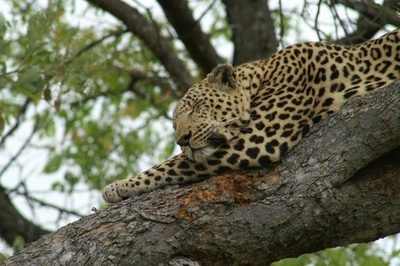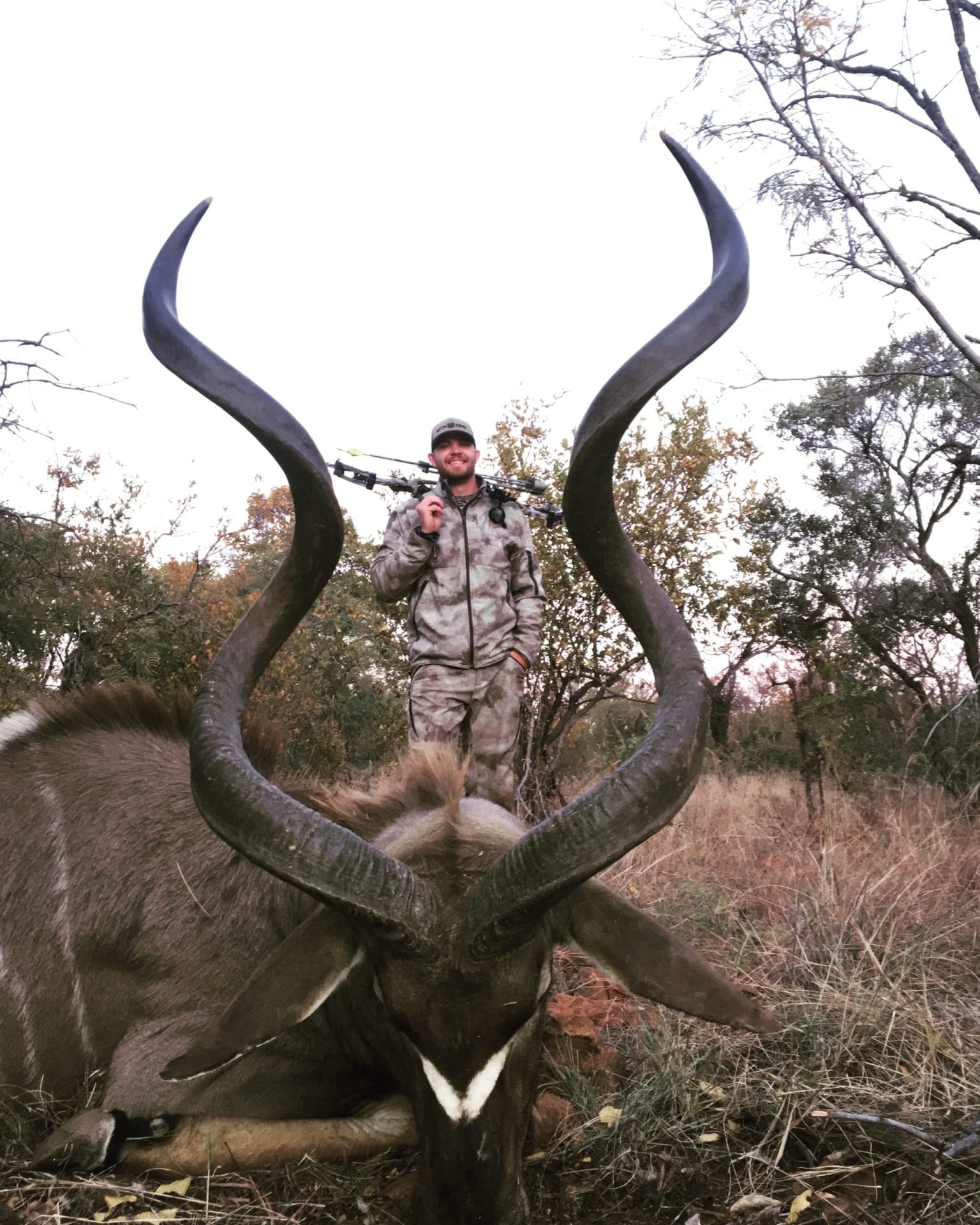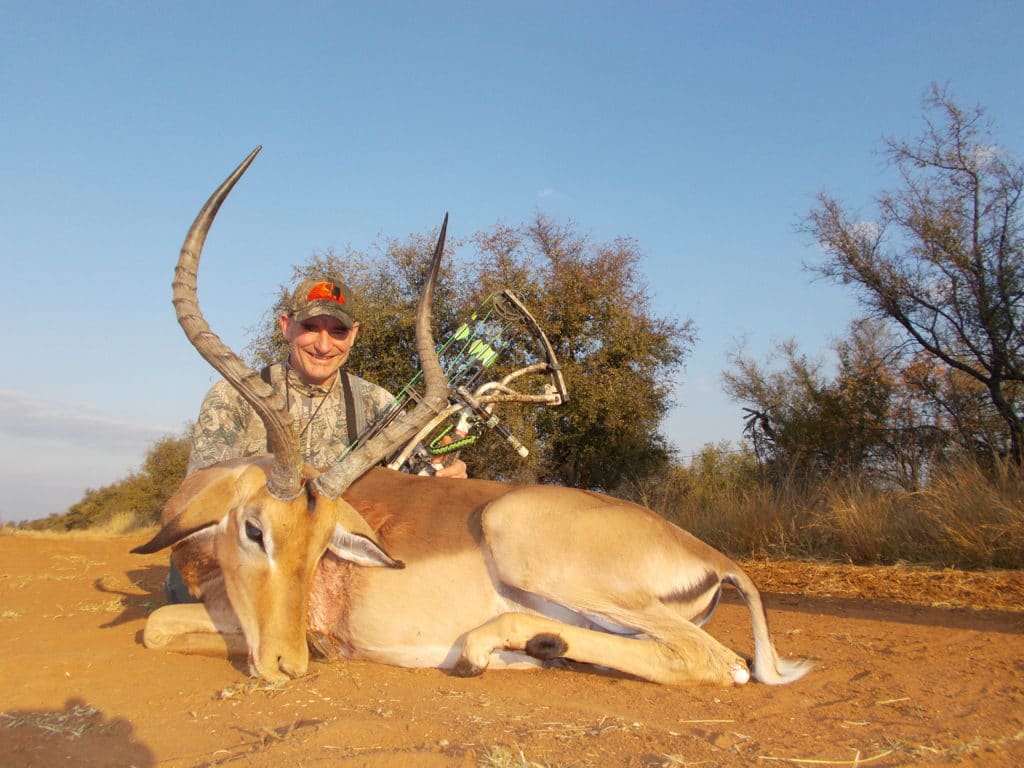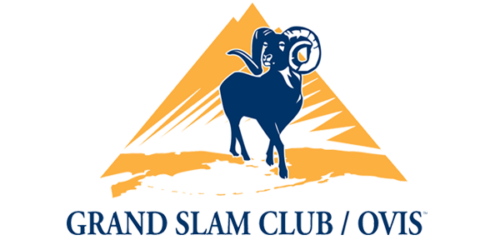The leopard (Panthera pardus) /ˈlɛpərd/ is one of the five “big cats” in the genus Panthera. It is a member of the family Felidae with a wide range in sub-Saharan Africa and parts of Asia. While common in most areas, the leopard is listed as vulnerable on the IUCN Red List because leopard populations are threatened by habitat loss and fragmentation, and are declining in some parts of the global range. Leopard hunting is legal in most of the countries of Southern Africa (although some don’t allow it), and we think this is the best conservation of leopard populations.
Compared to other members of Felidae, the leopard has relatively short legs and a long body with a large skull. It is similar in appearance to the jaguar, but has a smaller, lighter physique. Its fur is marked with rosettes similar to those of the jaguar. The leopard is distinguished by its well-camouflaged fur, opportunistic hunting behavior, broad diet, and strength (which it uses to move heavy carcasses into trees), as well as its ability to adapt to various habitats. [from Wikepedia]
Locals don’t like having leopards around.
When brought into close contact with human settlements, they may prey on livestock. Pastoralists will retaliate and kill the big cats in retribution or will attempt to exterminate them in order to prevent livestock killings.
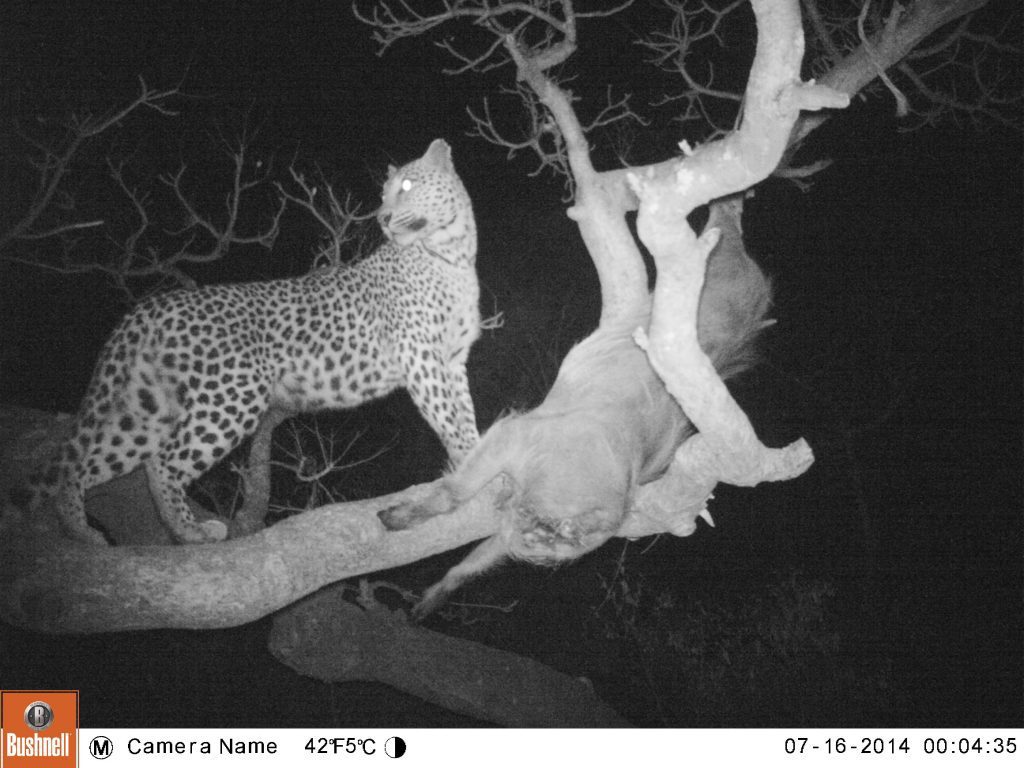
Habitat is the main issue with conservation of leopard.
Habitat fragmentation, reduced prey base, and human-wildlife conflict have greatly reduced this species’ population throughout most of their range. This is especially the case in areas that don’t allow hunting. Although they are widely distributed across Africa and Asia, due to habitat fragmentation and loss, their range has reduced by 31 percent worldwide in the past three generations (about 22 years). The commercialized bushmeat trade has caused a collapse of prey populations across large parts of savanna Africa — estimated an average of 59 percent decline in prey populations across 78 protected areas.
Hunting gives wild animals value.
Legal, regulated tourist hunting of African leopard (Panthera pardus) benefits the species through mitigation of the primary threats: habitat loss and fragmentation; increased human populations leading to higher incidence of human-wildlife conflict; poaching and illegal wildlife trade; and prey base declines.
Are you ready to book a leopard hunt?
Live Like You Mean It
Contact Us
We've helped thousands of OI clients plan their adventures
Our team of professional consultants are ready to help you research, book and plan an amazing trip with one of our amazing outfitter partners around the world.
I didn't think an experience like this was possible.
This trip, was, for me at least not just a trip, for me it was a real adventure, a real experience. I love the wilderness and this trip afforded me the opportunity to connect with the Alaskan wilderness in ways very few people do. It was an experience I will never forgot in a place I can’t wait to get back to.
Oliver Fischer
The outfitter handled everything perfectly.
We were thankful that Outdoors International hooked us up with a great outfitter because they were able to find us an acceptable alternate on short notice. Overall the two year process to get this float in was seamless and worry free. Just like it should be.
Thank you,
Stan Masneri
What an amazing experience!
The lodge was out of this world! Our rooms, the delicious food, the incredible wildlife and the scenery were amazing. Our photo safari guide was truly exceptional and had us on animals almost constantly. We saw over 30 different species and had some incredible up close experiences. Africa is amazing!
Scott Navares
Copyright 2005-2026 © Outdoors International™ · All Rights Reserved.


